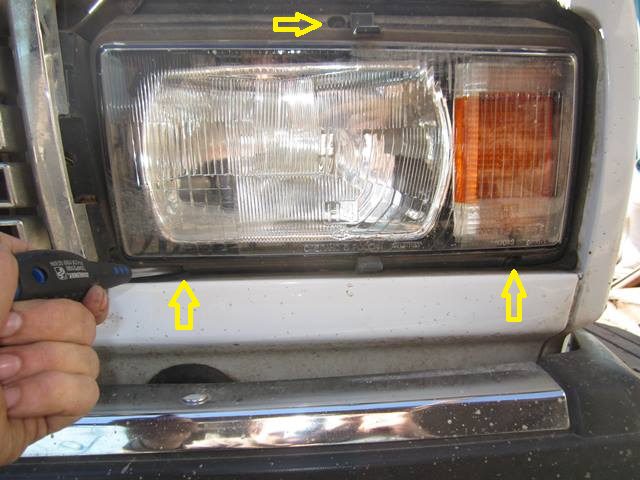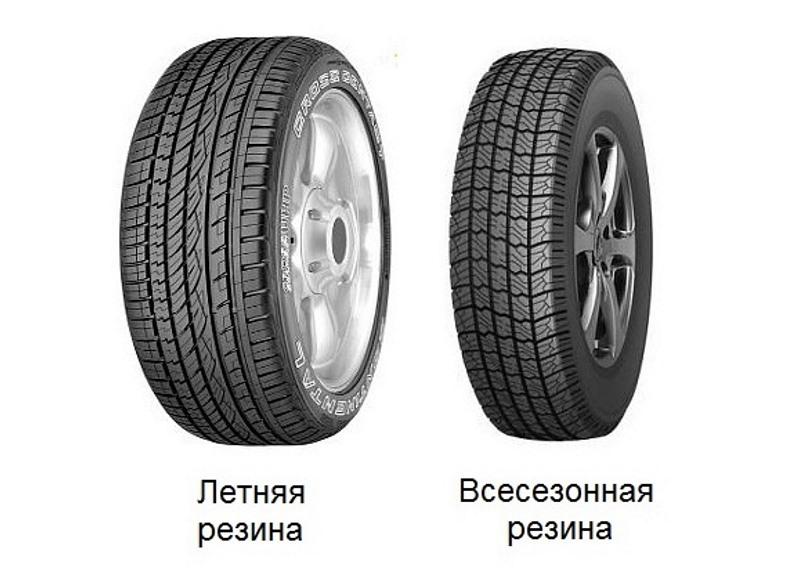
Which is better: summer or all-season tires, comparison by main parameters and financial benefits
Content
But during operation, you will have to face the fact that the wear resistance of all-weather tires is lower than that of summer tires by about 2, and sometimes 2.5 times. While one set of specialized tires serves, universal ones will have to be changed twice.
With the change of seasons, many car owners want to buy one set of tires per year, but comparing summer and all-season tires should include more than just a financial aspect. It is important to pay attention to the characteristics that affect safety on the road. The right choice can only be made by weighing all aspects.
Сравнительный анализ
The technical characteristics of tires are an important point that any motorist should understand. It will not be possible to say without a deep analysis whether summer or all-weather tires are better, you will have to pay attention to various parameters, and most importantly, consider them through the prism of an individual driving style, the conditions where the car will be operated, the climate zone and other nuances.
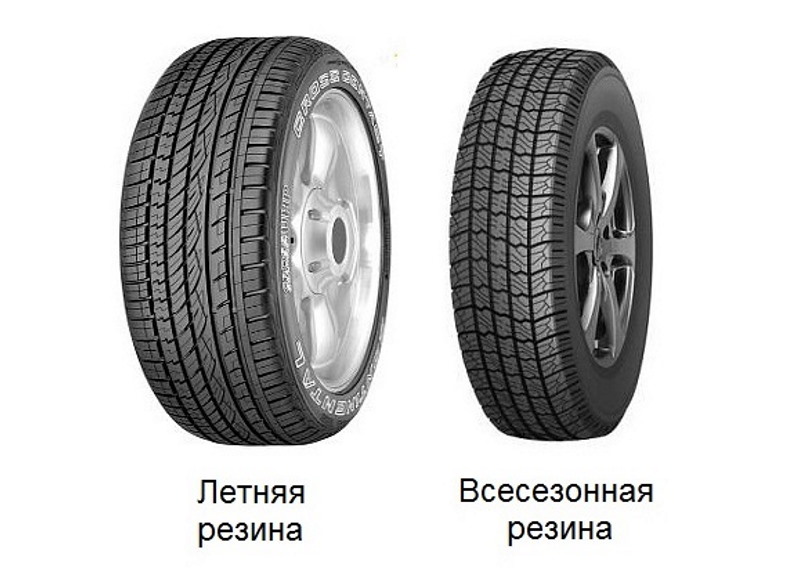
Comparison of summer and all season tires
| Summer | All-season |
| Good handling at 15-20 degrees Celsius | |
| Hydroplaning resistance and water evacuation from the contact patch | |
| Tough rubber compound that does not soften at high temperatures | Softer rubber, does not harden in the cold, but quickly "melts" in the heat |
| Smooth tread, low rolling resistance, reducing fuel consumption | High profile for better winter grip on snowy roads, more petrol and diesel consumption |
| Weak noise level | Noticeable noise, less smooth running |
| High wear resistance | Significantly inferior in terms of resources |
Universal tires are designed for climatic conditions where the air temperature does not rise above 20-25 ° C, when it is about 10-15 ° C outside the window.
By noise level
When it comes to choosing summer or all-season tires, you should pay attention to the difference in design.
According to rolling resistance
A comparison of summer and all-season tires shows that the tread pattern of the former is more monolithic, and the rubber compound is designed for operation in high temperatures.
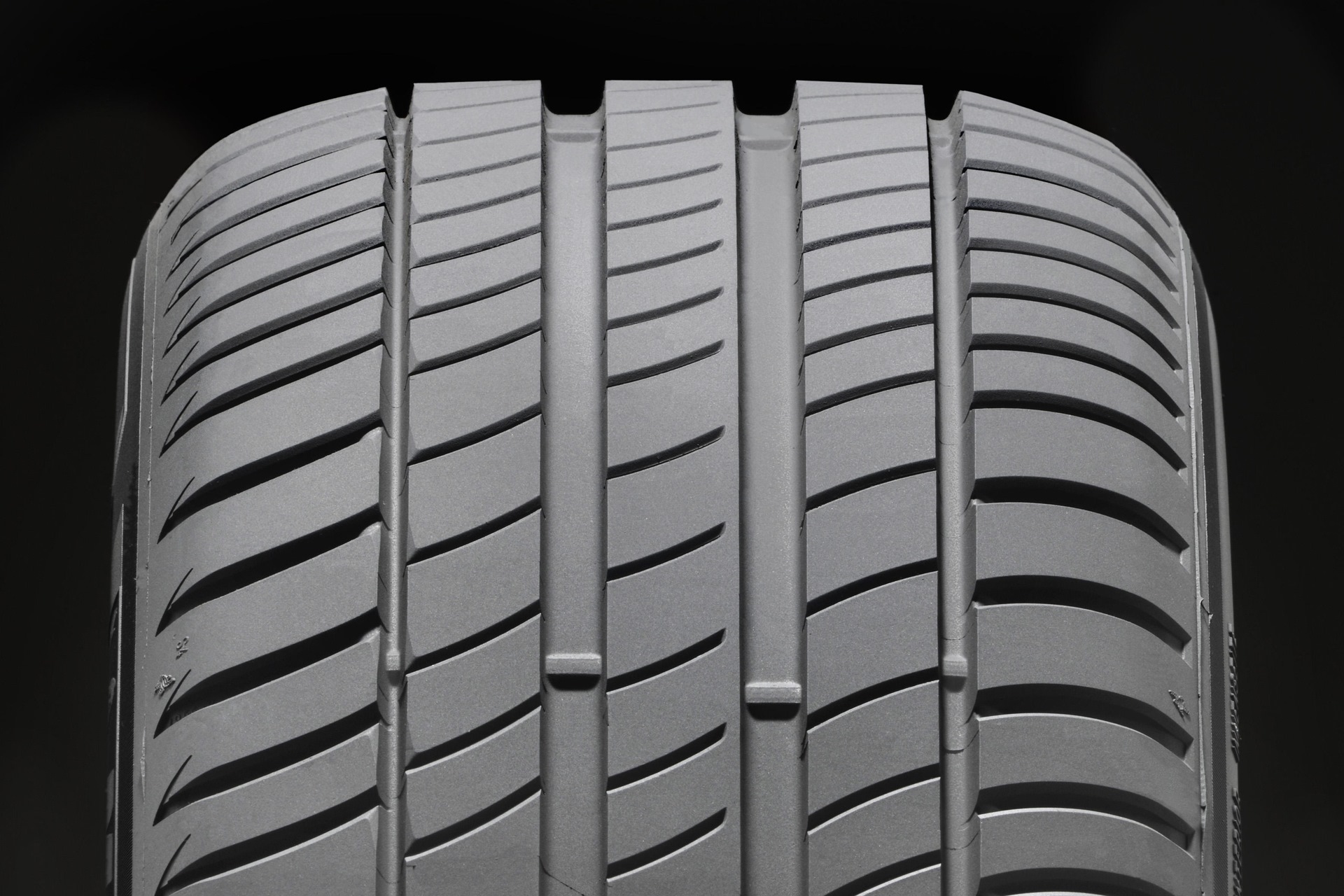
Summer tire tread
These characteristics allow specialized tires to outperform universal tires in terms of rolling resistance. When fuel consumption is critical, all-season should be abandoned.
In terms of adhesion
Driving stability and maneuverability depend on the grip capabilities of the tires. A comparison of summer, winter and all-season tires shows that these parameters differ significantly between models.
Dry coated
When you need to determine what is better - all-season or summer tires - you need to evaluate the profile and sipes. A set of tires designed for the warm season differs in the design and composition of the rubber compound, which provide reliable grip on dry surfaces.
with wet asphalt
If a car enthusiast asks the question “Which rubber performs better when driving on wet surfaces - summer or all-weather?”, The answer will be unequivocal: universal. But it is important for the owner to be aware of exactly where he will use the car more often. In urban conditions, the difference will be insignificant; on dirt roads, all-season should be preferred.
By service life
The presence of certain components in the rubber compound depends on the weather conditions where the tires will be used.
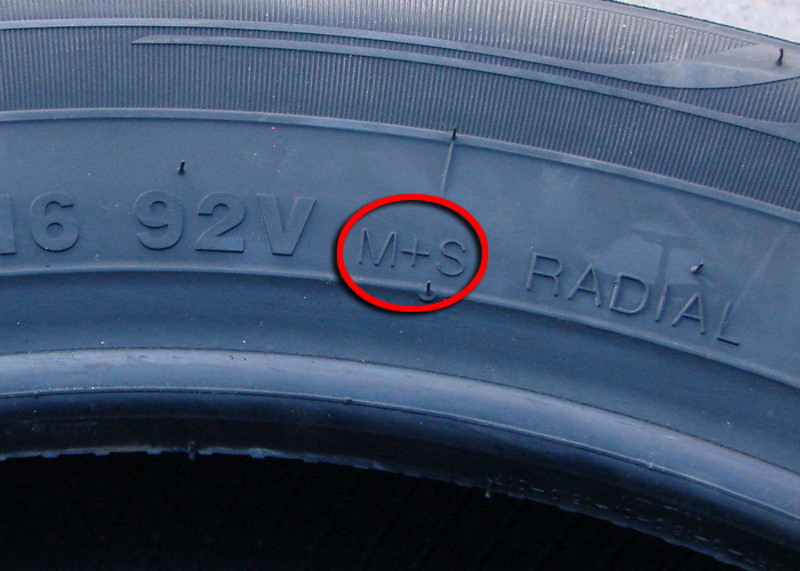
All season tires
Therefore, when deciding what is better for the summer - all-weather or summer tires - it should be taken into account that for the former, a weakened composition is used, which allows the tire not to harden at low temperatures. But in a hot period, such a tire softens faster and therefore wears out faster.
Which is better financially
To complete the comparison of summer and all-season tires, an assessment of the financial side of the issue will help. Buying one set for the whole year seems like an attractive investment, it will save up to 50-60% depending on the preferred manufacturer.
But during operation, you will have to face the fact that the wear resistance of all-weather tires is lower than that of summer tires by about 2, and sometimes 2.5 times. While one set of specialized tires serves, universal ones will have to be changed twice.
Deciding which is better - winter and summer or all-season tires - you can not take into account the quick benefit. It is necessary to consider the issue in the long term and compare other tire parameters.
Hack and predictor Aviator
In terms of technical characteristics, deciding whether summer or all-season tires are better is quite simple: universal tires are inferior to specialized ones. The advantages of the latter are as follows:
- provide good directional stability;
- avoid skidding during a sharp turn;
- guarantee driving comfort and smooth running;
- more economical in terms of fuel consumption;
- withstand a long service life.
The financial benefit from buying one set of tires for the whole year turns out to be insignificant, since the all-season tire lasts less. But each driver must take into account individual experience, preferred driving style and climate zone when choosing the right kit. In regions where the heat is set for a couple of weeks in summer, and cool for most of the year, specialized tires can lose out to all-season tires.
